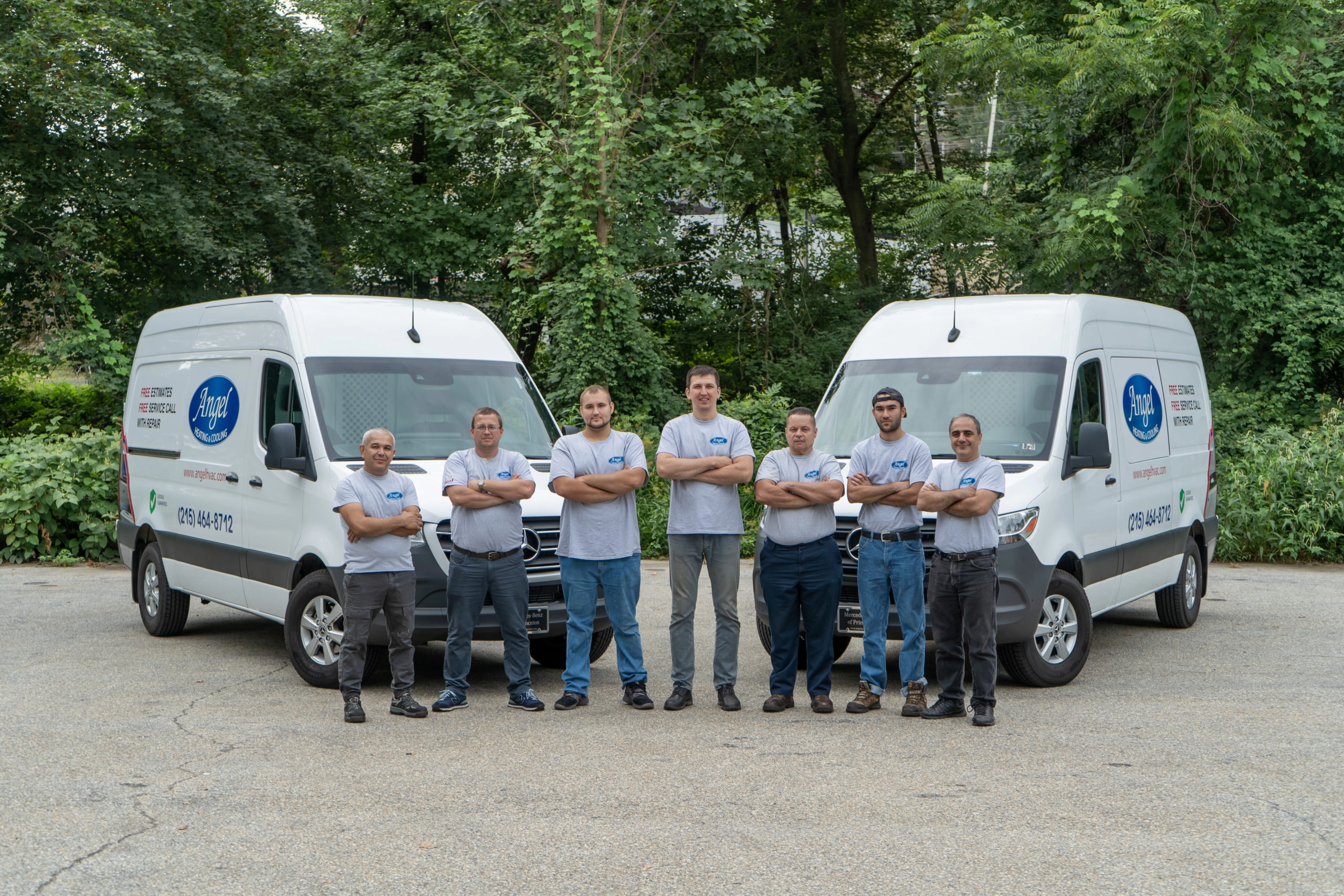The Top-Notch Boiler Service Washington Crossing Has Counted on for Decades
Find Out Why We Are Washington Crossing’s Preferred Boiler Repair and Boiler Installation Team
Nobody wants to worry about a broken or aging boiler, and with our team at Angel Heating and Cooling, you don’t have to! We offer the boiler service Washington Crossing has trusted for over 20 years and stop at nothing to ensure that everything is in top condition. You deserve nothing but the best value in HVAC, which is why we only offer the highest-quality products and always offer our customers long-lasting solutions.
Whether you need a boiler repair or a boiler installation, we have you covered.
Why Choose Angel Heating and Cooling?
-
Hundreds of Satisfied Customers
-
Family-Owned and Operated
-
Decades of Experience
-
Prompt and Reliable Service
Discover the boiler service Washington Crossing prefers and contact us to schedule an appointment today!
Washington Crossing’s Preferred Residential Boiler Service and Commercial Boiler Service Team
Whether you have an oil boiler, a gas boiler, or an electric boiler, we guarantee that our team will have your unit up and running in no time. At Angel Heating and Cooling, we are experts in all things HVAC repair and HVAC replacement related, and guarantee the results will exceed your expectations.
Boiler Repair
We eliminate the root cause of the problem during our boiler repair services to ensure that the issue doesn’t recur. After all, nobody wants to worry about an oil boiler, gas boiler, or electric boiler malfunction.
Signs You Need a Boiler Repair
-
Unusual Noises
-
Frequent Pilot Light Changes
-
No Heat or Hot Water
-
Uneven Heating
-
Low Boiler Pressure
Benefits of a Boiler Repair
-
Enhances Safety
-
Restores Heat and Hot Water
-
Prevents Expensive Breakdowns
-
Improves Energy Efficiency
-
Extends Boiler Lifespan
Boiler Replacement
You need a company that specializes in HVAC replacement, which is why Angel Heating and Cooling makes the most sense for your home. We offer the boiler replacement services that you’ve been looking for. Whether we’re performing the boiler installation or educating you on boiler maintenance, we guarantee we always go the extra mile for our customers.
Signs You Need a Boiler Replacement
-
Frequent Breakdowns
-
Rising Energy Bills
-
Strange Noises
-
Uneven/ Inconsistent Heating
Benefits of a Boiler Replacement
-
Enhanced Home Comfort
-
Improved Energy Efficiency
-
Reduced Likelihood of Breakdowns
-
Lower Heating Costs
Emergency Boiler Repair
At Angel Heating and Cooling, we perform swift and efficient emergency boiler repair services and won’t stop until the issue is gone for good.
What Counts as a Boiler Emergency?
-
Carbon Monoxide Alarm Triggered
-
Sudden Unusual Noises (whistling, banging, gurgling, etc.)
-
Gas Leak or Gas Smell
-
No Heat or Hot Water






